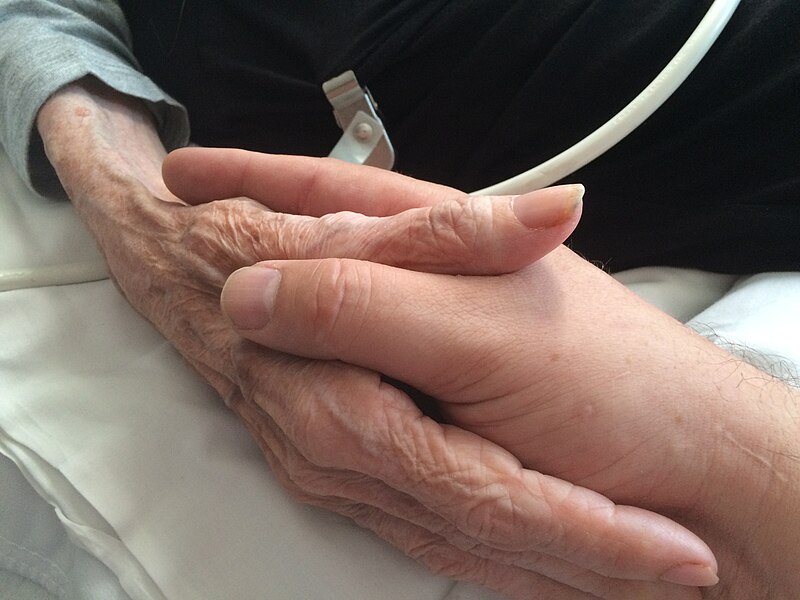Dementia
I’m Ed Smith, a Sacramento Nursing Home Abuse Lawyer. It is not unusual for people living in nursing homes to have multiple medical problems. In fact, many families are forced to place their loved ones into a nursing home because they are no longer able to provide adequate care for them. This is especially true when they have medical issues such dementia or have suffered a geriatric fall.
Elderly Individuals with Dementia
One of the most common issues that elderly individuals can develop is called dementia. This is a disease that can present itself in a variety of ways but can provide a source of frustration for anyone involved in their care. It is important that loved ones educate themselves on the signs and symptoms of dementia so they can be prepared if it appears. It is equally important to watch for signs of nursing home neglect or abuse if your loved one has been diagnosed with dementia and is a resident of a nursing home.
Nursing Home Neglect: Dementia
Did you know that nursing home neglect is one of the most common types of nursing home abuse in our country? Neglect is the failure of a caregiver to meet all the needs of a dependent person. In a nursing home setting, residents have many needs that must be met on a continuous basis. Some of their basic needs include hydration (clean water), social stimulation, nutritious food, safe and clean surroundings and prompt medical care. When we place our loved ones into a nursing home, we do it with the intention of providing them the quality and specialized care they need and deserve. Many nursing homes provide a good quality of care for the residents in their facility. However, it is not uncommon for a resident’s needs to become neglected due to a staff shortage or when staff members are not properly trained to adequately care for a resident’s specific needs, such as dementia or other traumatic brain injuries.
Watch Youtube Video – Nursing Home Abuse: The video below highlights abuse and neglect that occurs in nursing homes and the reasons and statistics behind it.
Symptoms of Dementia
Dementia has been an active area of research over the past few decades but it is still unclear what actually causes dementia. The brain communicates using neurons that are regulated by chemicals in the brain called neurotransmitters. When people develop dementia, these neurons start to die. The symptoms that develop vary based on the location of the neurons that die. If patients lose neurons in their frontal lobe, the patient will show signs of difficulty with executive functions, loss of inhibition, and loss of judgment. Neuron death in the temporal lobe will start to impair memory. People will struggle to recognize faces and forget names, dates, and even their loved ones. Symptoms of dementia vary widely based on the location of the disease within the brain; however, it is universally a decline of mental capacity.
Diagnosis of Dementia
The diagnosis of dementia is largely a clinical correlation that depends heavily on an accurate timeline of symptom development from the family members. That, combined with key functioning tests performed by the physician, will confirm a diagnosis of dementia; however, it is likely that the physician will order an MRI to look for brain deterioration. Sometimes, the lobes of the brain will begin to shrink as symptoms progress. The only way to 100% confirm a diagnosis of a specific form of dementia is through a brain biopsy performed during an autopsy.
Treatment of Dementia
The treatment for dementia will vary depending on the type of dementia that is diagnosed. The most common class of drug used to treat dementia is called an acetylcholinesterase inhibitor. This includes the common drug used to treat Alzheimer’s disease called Donepezil. This class of drug works to increase the amount of acetylcholine within the brain. This is a neurotransmitter that is commonly decreased when the neurons die. Increasing the amount of acetylcholine within the brain can help to slow the progression of the disease.
Patience with Dementia is Key
Patients with dementia are often frustrating to deal with because of their mental deterioration, notably a loss of judgment and impaired memory; however, people should always treat people with dementia with patience and compassion. Loved ones should never have to suffer abuse at the hands of a nursing home, especially due to dementia.
If your loved one is a resident in a nursing home and has dementia be sure to watch for signs of social isolation, weight loss, bed sores, and abuse. Let the director of the facility and your loved one’s physician know right away if you suspect negligence or abuse. Contact an experienced attorney for more information.
Related Articles by Ed Smith:
- What to do if you Suspect Nursing Home Abuse
- Decubitus Ulcers – Pressure Sores/Bed Sores
- Geriatric Fall Patterns
- Financial Abuse in Nursing Homes
- Types of Brain Injury
Sacramento Nursing Home Abuse Attorneys
I’m Ed Smith, a Sacramento Nursing Home Abuse Lawyer. If you or someone you care about has suffered abuse or negligence in a nursing home, please call me anytime at 916-921-6400 or 800-404-5400 for free, friendly advice.
I have been helping Sacramento residents and their family members recover compensation for their personal injuries and wrongful death claims for more than 34 years.
Member of the Million Dollar Advocates Forum.
See my long history of successful Past Verdicts and Settlements.
Before you call me, take a moment to look up my client ratings on Yelp, Avvo, and Google.
:dr/bw

